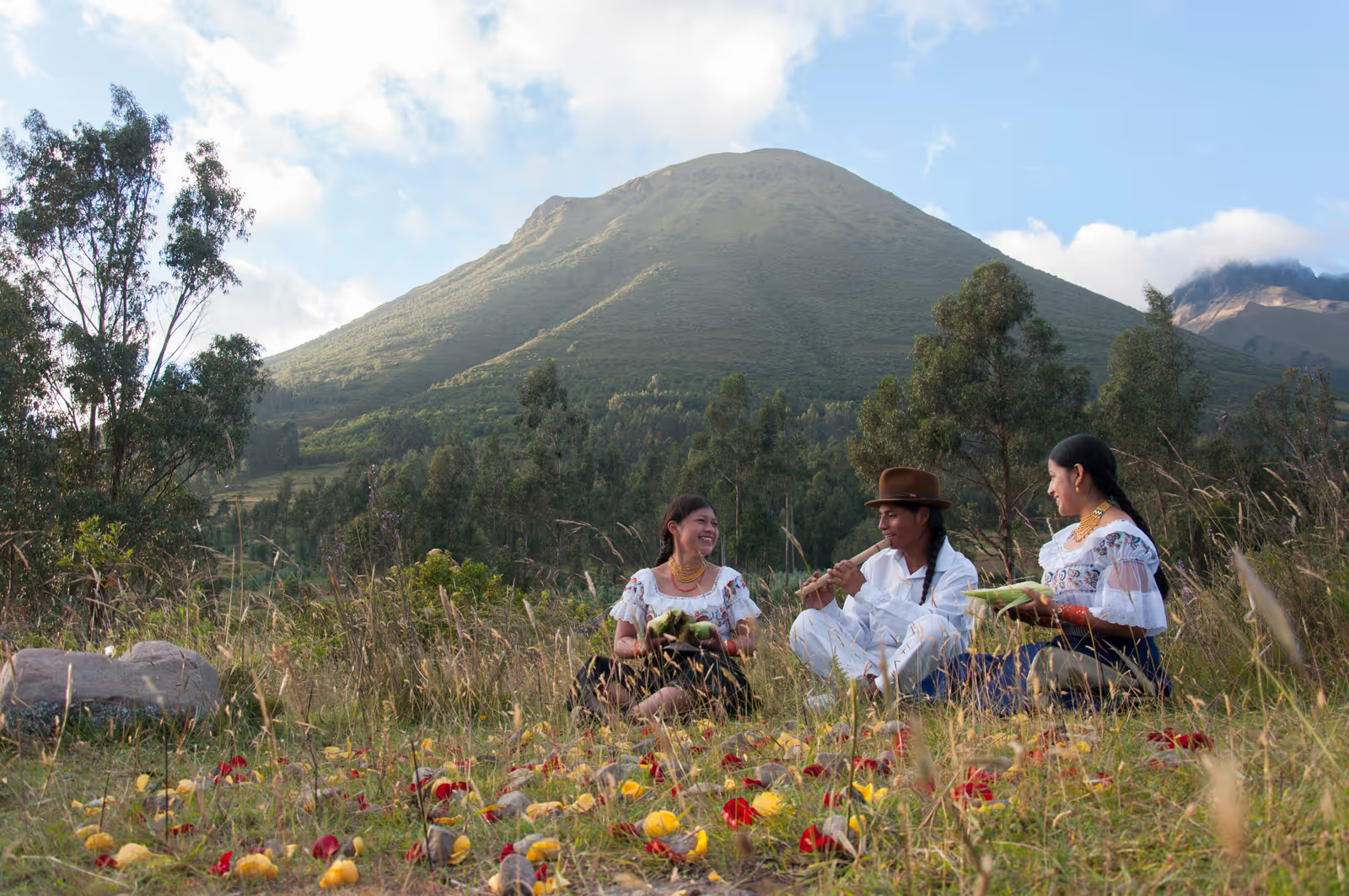Learning objectives:
- Understand multiple ways of valuing and relating to nature exist
- Understand how nature exists in social and cultural contexts and how the meanings assigned to nature have value for people in socio-cultural ways
- Reflect on how incorporating the socio-cultural values of nature in environmental decision-making can improve its social and ecological outcomes
The multiple values of nature
Given that nature’s non-material benefits to people’s wellbeing are dependent on how we value nature and how deeply we feel connected to it, it is worth exploring the different ways in which people value nature. The IPBES Diverse Values of Nature for Sustainability assessment (2022) identifies three main types of value systems that broadly inform how people value nature.
Biophysical: informed by a scientific approach which uses an instrumental understanding of nature (the importance of nature is determined by what it can do for humans).
In this context, a biophysical approach would seek to measure nature by understanding it through a traditional scientific lens. This would involve taking measurements of the biological qualities or physical attributes of things within the natural world. Biophysical valuations of nature may be used to best understand the regulating benefits of nature such as quantifying air quality or the material benefits that nature brings to people such as measuring the nutritional value of a crop.
Monetary: economic measures that use economic terms to value nature, such as the price to sell nature (fish in a market, for example) or the price to protect nature (pricing the carbon stored in trees to avoid them being cut down).
Monetary approaches also take an instrumental approach to nature which relates to the satisfaction of needs and preferences and nature’s usefulness to people. Monetary valuations of nature may be used to describe nature's benefits to people in financial terms.
Socio-cultural: much more context-based and understand nature as being part of social and cultural systems. Socio-cultural approaches are informed more by intrinsic values of nature that place an emphasis on the inherent worth of biodiversity, separate from the utility nature has for humans.
Additionally, socio-cultural values are also informed by relational understandings of nature which place importance on the interconnected and reciprocal relationship between humans and non-human nature. Socio-cultural values of nature may be used to understand nature's contributions to people in cultural terms, particularly (but not only) nature’s non-material benefits to people.
What the authors of the IPBES Diverse Values of Nature for Sustainability Assessment (2022) tell us is that traditional Western types of environmental governance have mostly been informed by using biophysical and monetary valuations of nature. However, importantly, this has often left out more nuanced, locally specific and complex understandings of the socio-cultural role that nature plays in people’s lives, often to the detriment of local people. The authors recommend that for environmental governance to be truly transformational, it needs to include diverse values to improve the outcomes of environmental decision-making (Pascual, et al., 2023).
Likewise, nature’s socio-cultural benefits to people and how we value nature through understanding its role in social and cultural contexts is a crucial component of environmental education. For environmental education to be transformative, it should be informed by multiple understandings of nature’s values, including through teaching about the non-material benefits of nature and their relational and intrinsic values.
Improving environmental governance through accounting for nature's socio-cultural benefits to people
Socio-cultural benefits support human wellbeing not just through material benefits that nature provides (like food), but also through the significant non-material benefits that reinforce identity, establish feelings of belonging and a sense of place, improve mental health and contribute to collective resilience.
People’s relationships with nature are complex. They are shaped by cultural, spiritual and identity-based values. Different cultures throughout time have attached different types of meaning, belonging, connection and emotional wellbeing to nature - which is why understanding these socio-cultural contexts should be integrated into how we study and perceive nature.
The diversity of different meanings relating to how people understand and relate to nature is just as true today when looking at the diverse array of how different cultures value nature.
However, an important and common thread is that many Indigenous cultures still emphasise the intrinsic value (nature has worth independently of human use) and relational value (such as interconnectedness of human and non-human nature, reciprocity, stewardship and care) of nature.

Through recognising the diversity of socio-cultural values of nature and reflecting this in our decision-making, we can achieve more just and equitable outcomes. For example, if the governance of a protected area includes the recognition of the area's spiritual importance to a local community, it will have improved ecological and social outcomes.
In this way, IPBES argues that valuing nature in plural ways - including accounting for its non-material benefits - such as its cultural, spiritual and intrinsic values, can unlock transformative change. This means reflecting diverse worldviews of indigenous people and marginalised communities in decision-making to account for ways of valuing nature that have been historically left out of western approaches to environmental governance in the last decades (IPBES, 2022).


















